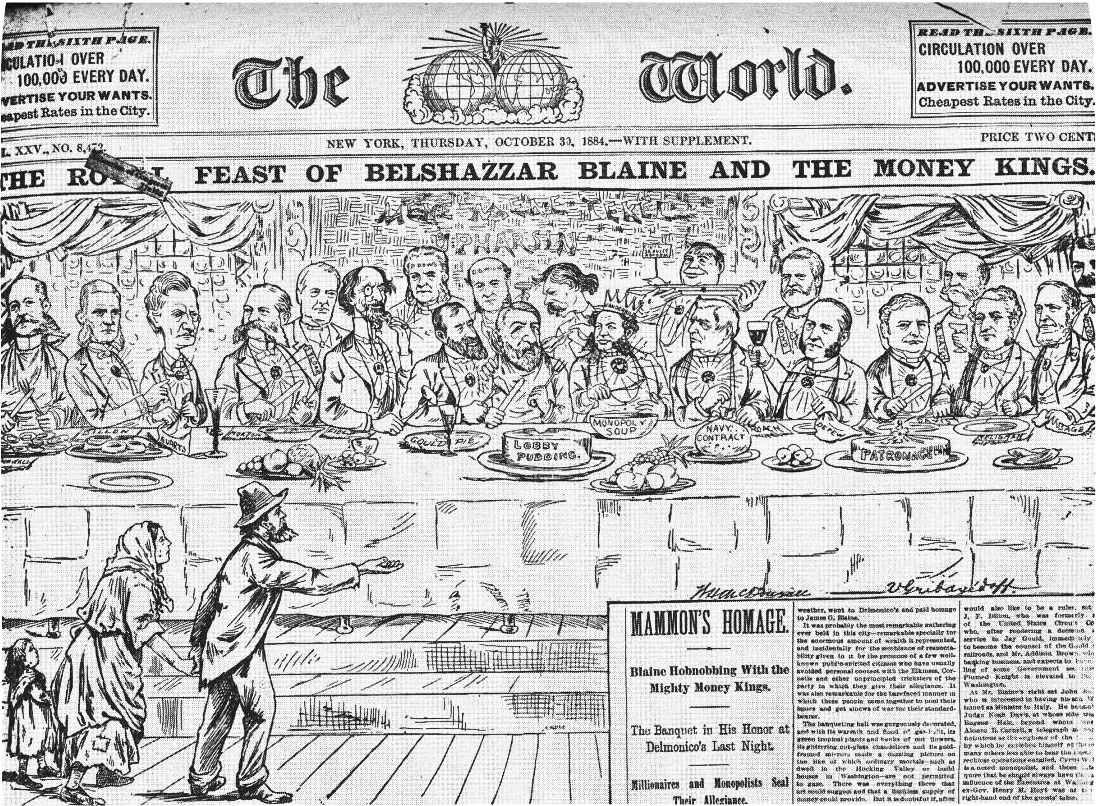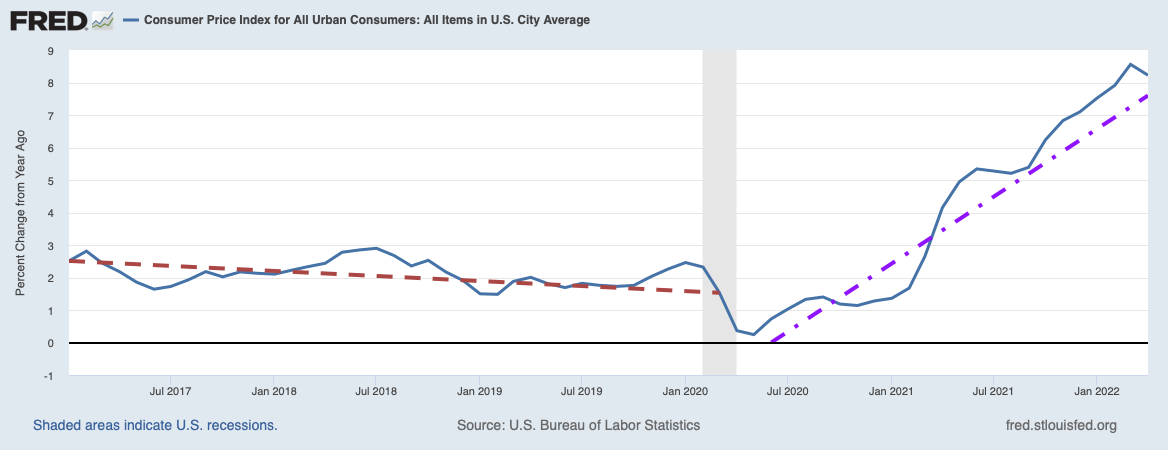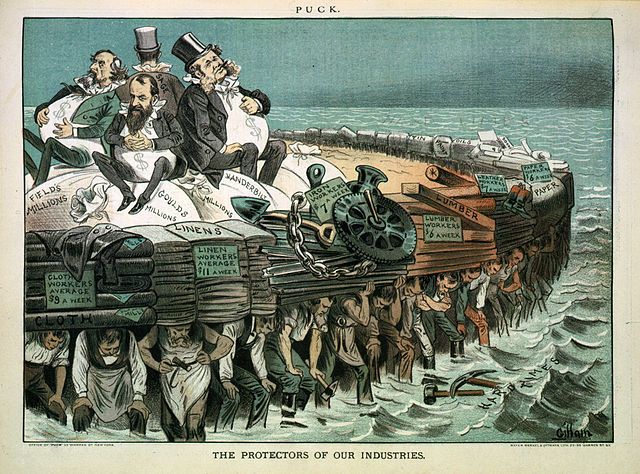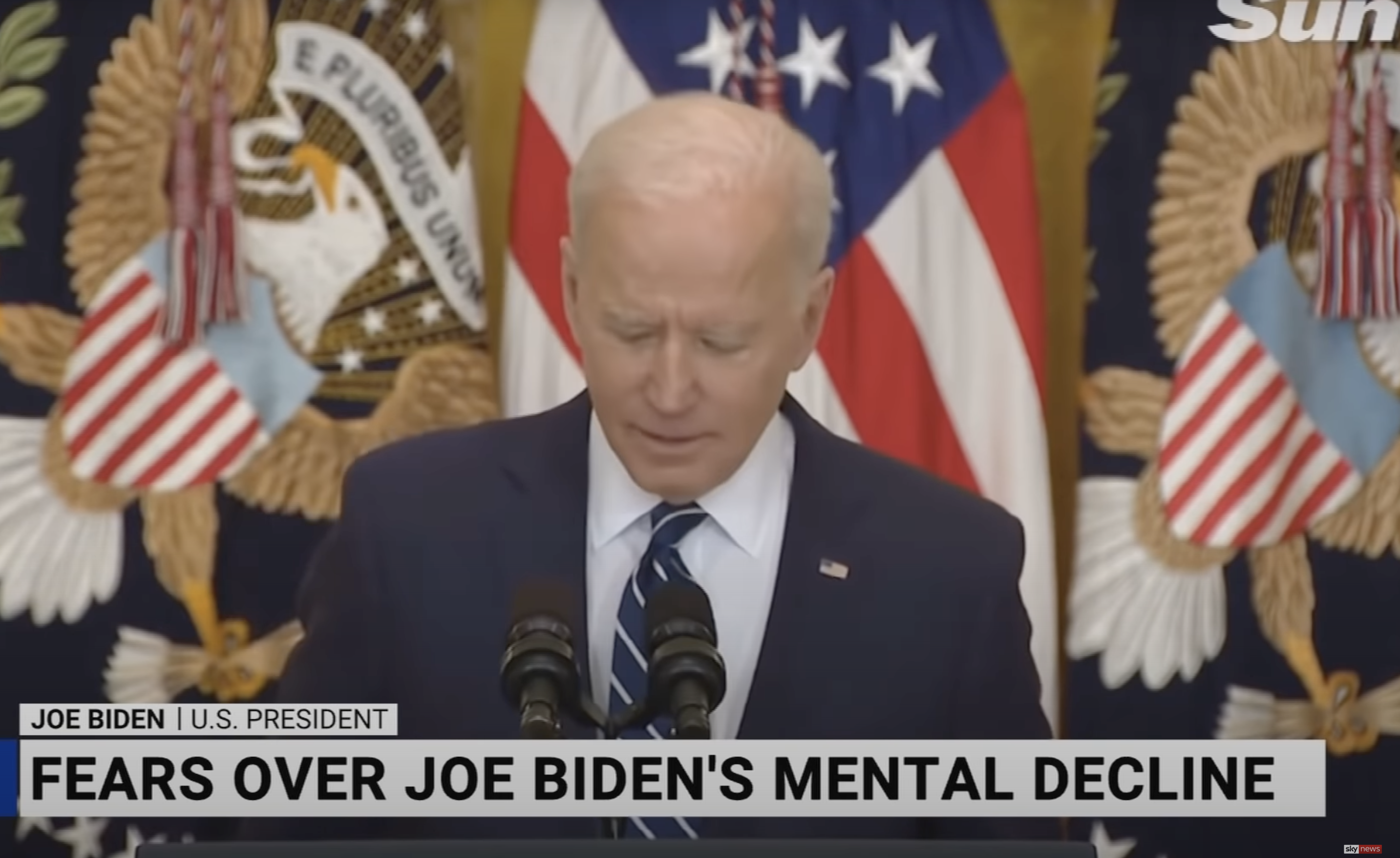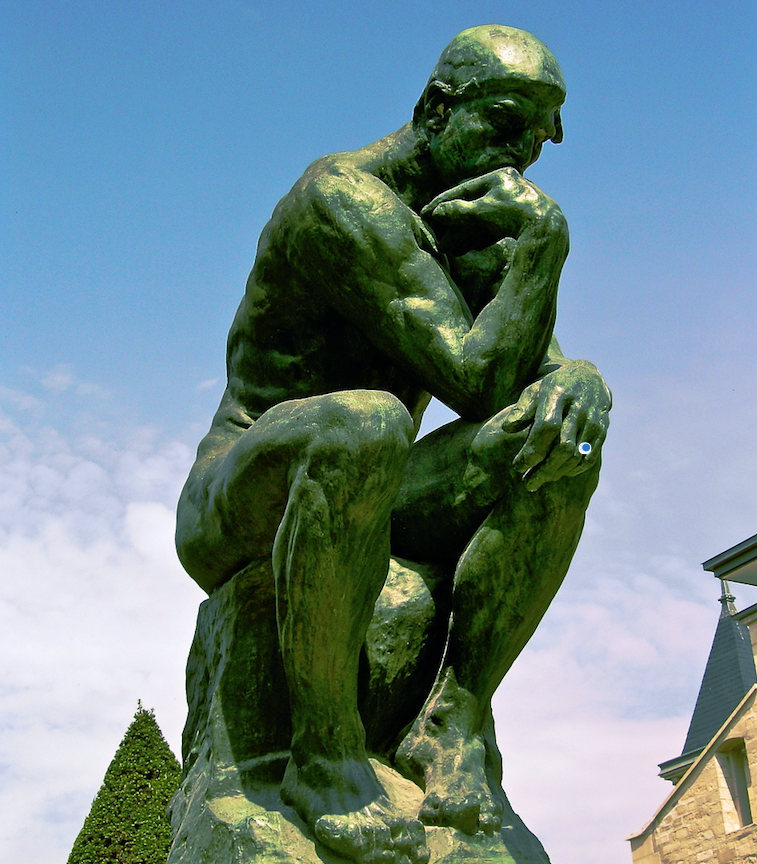How Flexible Are Progressive Minds?
The Thinker by Auguste Rodin. This is what we must all do if we are to survive as a free nation!
Wikimedia Commons / Andrew Horne
The reactions by progressives over the last week to their epic loss at the polls have been anything but encouraging. As I noted in Progressives Doubling Down, Democrats show very few signs of becoming introspective over their loss, being totally convinced their policies are the right ones for the United States.
The Hit to Progressives’ Self-Image
One way in which Democrats are consoling themselves is by noting that although Hillary Clinton lost in the electoral college, she won in the popular vote count by roughly 1.3 million votes. This however is rather cold comfort, and any number of conservative commentators have been eager to point out progressives would be foolish to derive comfort from their popular vote majority.
For one thing, the Founding Fathers in 1787 were wise enough to know that small states needed protection from the tyranny of the majority by large states. The purpose of the United States was to allow individuals and cooperative groups of individuals to seek out their own destinies with as little coercion from the national government as possible. States can vary their ways to be most desirable for their citizens, and individuals can seek out the states with the greatest attraction for them. The institution of the electoral college was one of several safeguards to protect minorities from the tyranny of the majority.
Secondly, if a constitutional amendment were passed to elect the president by a popular vote, Trump and conservatives would simply change the way in which they campaigned. For example, if all of the votes from states like California and New York did not go in their entirety to a single winner, conservatives would exert more effort to earn as large a portion of them as possible, rather than pretty much ignoring them.
Also, the vote against the progressives was far more one-sided than the popular vote majority Hillary Clinton achieved indicates. Not only have the Republicans captured the White House and retained control of both the House and Senate, but they also now hold the governorships of two-thirds of the states, and in 50 percent of all the states they possess the governorship along with control of both houses of their state legislature; Democrats control only seven states to this degree, 14 per cent of the total: California, Connecticut, Hawaii, New York, Oregon, Rhode Island, and Vermont. The GOP now controls a record 69 of 99 state legislative chambers. State governments not only determine many of society’s operating rules, they also act like farm teams for a party’s future candidates at the national level. Losing so much in the state governments does not bode well for the Democratic Party’s capability to field quality candidates in the future.
If we get beyond arguments over the desirability of the electoral college, the results of the recent election are pretty devastating to progressives’ self-image. Progressives have always envisioned themselves as the champions and protectors of the working class. For this self-same working class to reject them along with society’s elites is, as Bernie Sanders has admitted, nothing less than humiliating. This is a rejection of elites that is not confined to the United States alone, as we have seen in the Brexit vote in Great Britain and in the prospective Frexit vote in France. The slow unraveling of the European Union is just as much a rejection of dirigiste, left-of-center elites in Europe as the election of Trump was here in the United States. If past is prologue, perhaps we should expect to see soon a similar rejection in Japan, where dirigiste failure is just as evident.
Nevertheless, conservatives should be wary of being triumphalist, since the division of opinion, both among our citizens and those of the European Union, is still fairly even. Democrats are seizing on this fact (remember their 1.3 million presidential popular vote majority!) to insist they were robbed and to double down on their policies. Many of them are insisting their losses merely demonstrate how racist, misogynistic, homophobic, and xenophobic so many in the American electorate are. Given the hostility of so many to the country’s elites, it is hard to see how progressives’ labeling about half the American electorate as inhuman monsters will avail the Democratic Party much. Yet, the call for the government to solve all problems is a potent temptation, offering an easy answer to problems.
How Should Conservatives React to the Progressives’ Hissy Fit?
To maintain the conservative gains of this election and to expand on them, Republicans will have to do a lot more than merely oppose past Democratic policies and replace them. The balance of public opinion between the progressives and conservatives, despite the Republican advantages in offices held, is on the edge of a knife blade and could go either way in the future. The basic problem is that, just like Donald Trump, most of the American citizenry have a fairly underdeveloped personal ideology. Their opinions are not sufficiently supported by a system of interconnected, consistent ideas undergirded by observed facts to remain constant in any one direction.
There is a real possibility the Republican changes in federal government policies will cause such a rapid improvement in the economy that the American public will instantly approve and fall in line. However, there is also the possibility that significant improvements will take much longer than a year, especially in the face of Democratic filibustering in the Senate. If that is the case, Republicans and conservatives in general should do something to educate and convert hearts and minds. Conservative magazines, bloggers, TV commentators, and newspapers are always trying to do this, but they are easy to dismiss by their progressive counterparts, who are much more numerous.
There is much that Donald Trump, Paul Ryan, and Mitch McConnell could do to advance public education even the main stream media could not ignore. For example, public hearings on Capitol Hill concerning the ways in which an economy is supposed to work and why it is not working well now could be held. To be believable, they would have to include presenters from the current dominant Keynesian and dirigiste viewpoint. Naturally, neoclassical and New Classical economists should be given every opportunity to respond. Also, detailed support of particular viewpoints with available data should be required.
One absolutely necessary piece of any such national conversation would be a comparison of how different political entities have succeeded or not with different kinds of economic policies. I have tried to make a beginning on this kind of economic comparison in the posts:
- Comparing the Economies of All Countries on Earth,
- Are Leftist Economies Better Than Free-Markets?,
- The United States: An Exceptional Country?,
- The Socialism of the Scandinavian Countries,
- A Closer Look at the Index of Economic Freedom,
- Economic Freedom in the United States,
- Where the Left is Leading the World: Catastrophe
At the top of this post is an image that summarizes our current national predicament. If there is a fundamental divide between the American people on what is real and what is not, none of us has any choice but to do a lot of thinking. Those of us fundamentally uncertain about what reality actually is have the harder problem. They have to try to discriminate between the two sides of our version of a religious civil war. However, those of us on either side who think, perhaps erroneously, we understand the basic nature of social, political, and economic reality are not exempt from this very serious thinking. We have to conceive and implement some way of persuading our fellow citizens that we are right and our opponents wrong.
The original version of Auguste Rodin’s The Thinker was at first entitled Le Poète (the Poet) and almost certainly was a (unrealistic) representation of the author of the Divine Comedy, Dante Alighieri. It was conceived as a surround for a doorway depicting Dante at the Gates of Hell contemplating its nature.

Wikimedia Commons / Jean-Pierre Dalbéra, Paris, France
If we do not think hard and effectively to avoid it, we might very well be entering through those very Gates of Hell.
Half of America’s citizens are butting heads with the other half because of the differences in their views about reality. In a very real way this conflict is much like the European religious wars between Roman Catholicism and protestants. When very basic faiths conflict and can not be reconciled, warfare can not be far behind. Our task and profound hope should be to restrict this warfare to the merely rhetorical.
Postscript: Thanksgiving Day, 11/24/2016:
I am afraid in ending this essay I was entirely too ambivalent about conservatives’ chances to convert progressive hearts and minds. In doing so I inadvertently left too pessimistic a tone that is not at all realistic.
In fact, we have reached a point in history that practically begs for a new paradigm, to borrow for the political “science” of governing Thomas Kuhn’s terminology on scientific revolutions. The old paradigm of democratic governments “managing” the macroeconomic health of the nation through regulation, taxation, and monetary policy is working not at all in the countries where it is being utilized: primarily North America, Europe, and Japan. In the face of so much economic failure, progressives must be seriously uncertain in their minds in which directions they should travel. They could either go in a much more authoritarian way (probably their inclination), or they can journey into the terra incognita of a neoliberal regime. What they can not do without courting social and economic catastrophe is to continue their present course.
The situation has become so serious that many Keynesian economists, led by Larry Summers, are desperately trying to resurrect the old Keynesian doctrine of Secular Stagnation. One can not at all disagree with them that we are very much in a state of international economic stagnation. It is also impossible to disagree with the judgement that that stagnation is secular in the sense it is not coupled to the business cycle and is long-lasting. That is, it would be long-lasting if we can not find the causes of the stagnation and eliminate them.
The problem with the Keynesian version of secular stagnation, which must cause heart burn among at least some progressives, is that it postulates the stagnation sources to be market failures. These market failures then discourage investments by companies, leading to reduced economic activity. Here again I can not disagree, at least to the extent companies are not currently investing much. Of course, for neoliberals like myself, the explanation for corporate discouragement lies much more in government failures destroying economic activity.
Why should the Keynesian excuse of secular stagnation be causing some if any progressives heart burn? It is because the mighty progressive effort of the past decade to stimulate economic activity has led to such an abject failure all over the world. In the United States under the Obama regime the effort has cost a doubling of the national debt to around 105% of GDP without yielding positive results.
At no other time during my lifetime have conservatives (i.e. neoliberals) had a better chance to disabuse progressives of their religious belief in the efficacy of government economic rule.
Views: 1,697























